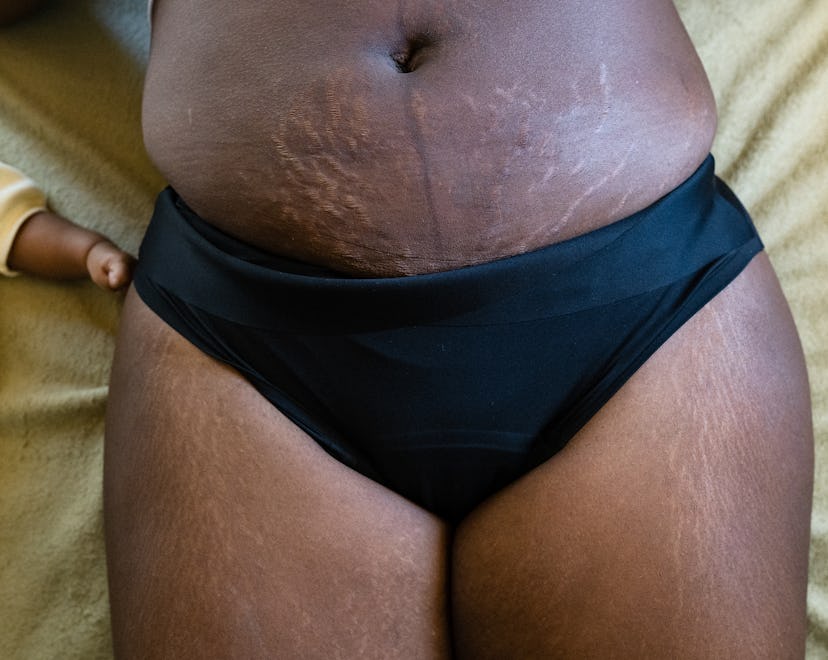Postpartum

Everything You Need To Know About Postpartum Gas
Flatulence 411.
Bloating and gas are never welcome. Who wants to feel like a helium balloon? But when you’ve just delivered a baby and are trying to get your life together caring for them while recovering, well, that’s the most inconvenient time to experience gas. Unfortunately, postpartum gas is a very common occurrence.
But before you panic, you should know that like gas experienced prior to becoming pregnant, it’s typically relatively easy to alleviate the type that builds up postpartum. And with a little insight into the causes and symptoms of postpartum gas, you’ll be better prepared to handle it and get yourself comfortable more quickly.
What Causes Postpartum Gas?
There are several factors that contribute to postpartum gas including hormonal changes, supplements and medications prescribed during pregnancy and recovery, and diet.
Flatulence is often related to postpartum constipation, says Dr. Nisha Verma, an OB/GYN and abortion care provider. “Constipation is actually one of the most common things that we'll see both in pregnancy and postpartum,” she says. Yep, the two dueling afflictions of gas and constipation tend to arrive together. “Often people will be constipated and then be having like bloating and gas related to constipation,” she explains.
“Gas is related to hormonal changes,” says Dr. Verma, “as well as the mechanical effects of your uterus getting bigger.” She adds that people who get anemic during postpartum will be put on an iron supplement, but that medication can make people feel constipated and bloated. Which in turn becomes really bothersome gas.
“Pain medications during postpartum, like a lower dose narcotic, can make them really constipated and gassy as well,” she says.
Keep in mind, your diet post-birth can play a factor too. If you’ve avoided certain foods for nine months, then go whole hog on them after delivery, your body might react with gas as well.
Postpartum Gas Symptoms
You can probably guess the symptoms of postpartum gas: bloating, flatulence, cramping, and abdominal discomfort. Basically you probably feel like someone just blew up a basketball in your belly. And as Dr. Verma mentioned, in all likelihood, these symptoms are probably accompanied by some constipation too.
Treatments for Postpartum Gas
Doctors often send postpartum patients home with stool softeners to help ease constipation and, in turn, gas. So you can certainly use those to help relieve some gas pain. Over-the-counter options will also help as well.
“I send patients home with Colace and tell them to take it twice a day,” says Dr. Verma.
You can also turn to home remedies such as getting up and going for a walk to get the body moving and relieve some of that trapped air.
When to See a Doctor For Postpartum Gas
Because postpartum gas and constipation are so often linked, if you can alleviate the constipation, gas tends to go away as well. But, as with anything, if your postpartum gas continues to persist beyond a few months after recovery and becomes more painful or disruptive to normal activities, Dr. Verma says don’t hesitate to reach out to your provider.
Expert
Dr. Nisha Verma, an ob-gyn and abortion care provider and Darney-Landy ACOG fellow
This article was originally published on